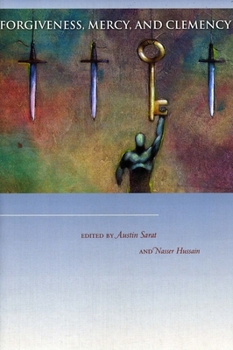Forgiveness, Mercy, and Clemency
Select Format
Select Condition 
Book Overview
Arguments for forgiveness, mercy, and clemency abound. These arguments flourish in organized religion, fiction, philosophy, and law as well as in everyday conversations of daily life among parents and children, teachers and students, and criminals and those who judge them. As common as these arguments are, we are often left with an incomplete understanding of what we mean when we speak about them. This volume examines the registers of individual psychology, religious belief, social practice, and political power circulating in and around those who forgive, grant mercy, or pose clemency power. The authors suggest that, in many ways, necessary examinations of the questions of forgiveness and pardon and the connection between mercy and justice are only just beginning.





